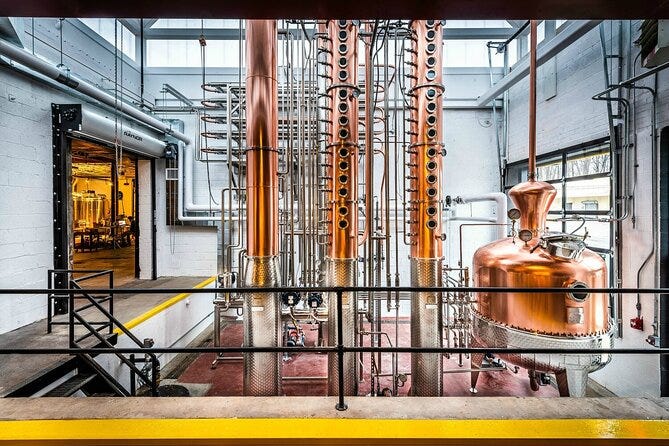Defense Tech Surges as Trump, Silicon Valley, and Boston Investors Pivot
from Climate to Combat
While the Trump administration and Elon Musk have dialed back federal research grants that once fueled the rise of life sciences, clean energy, and climate tech startups, another sector of the innovation economy is quietly experiencing a powerful tailwind: defense technology.
With global instability on the rise and the U.S. military under pressure to modernize, the White House and venture capital firms alike appear to be recalibrating their bets toward companies that build hardware and software for the battlefield.
From Climate Startups to Combat-Ready Innovation
President Trump, in conversations with key Silicon Valley founders — particularly executives at Anduril Industries, has signaled strong federal support for private-sector defense innovation. In March, the administration nominated one of Anduril’s senior directors to oversee the Army’s budget and procurement operations, a strategic move that investors read as clear evidence that startups — not just the Lockheeds and Raytheons — are set to win more contracts. As Anduril flooded Boston’s South Station last month with recruitment ads for its expanding local office, entrepreneurs and engineers from the region’s storied robotics and aerospace scene began pivoting away from climate and commercial products back toward the Pentagon.
Boston: A Legacy of Military Innovation Finds New Life
Massachusetts has been at the forefront of defense tech since the Cold War, with deep institutional links to the Department of Defense through the MIT Lincoln Laboratory at Hanscom Air Force Base. Since 1951, Lincoln Lab has seeded more than 100 spin-offs, including Digital Equipment Corporation and American Power Conversion (APC). Similarly, Raytheon Technologies (RTX), now headquartered in Virginia, traces its origin to a 1922 collaboration with MIT and still maintains a dense footprint of talent and R&D in the Boston area. With geopolitical tensions driving demand for next-generation weapons, autonomous systems, and AI-enhanced military platforms, a wave of modern startups are now retracing this historic path.
VC Money Flows Into Defense Startups
According to a recent J.P. Morgan “Startup Insights” report, defense tech, aerospace systems, and automation are now seen as "mission critical" growth sectors. One firm leading the charge is J2 Ventures, a Boston-based national security fund co-founded by Alexander Harstrick, a combat veteran. The firm raised $150 million for its second fund in 2024, backing companies like Code Metal, a startup specializing in drone mission planning and autonomous flight software.
A National Trend: From AirQtel to Beta Technologies
The Boston ecosystem isn’t alone. Nationally, defense and aerospace startups raised $6.6 billion in venture capital and grant funding in 2024, flat with 2023 but still outpacing sectors like cleantech and biotech, according to PitchBook. New England startups accounted for $383 million of that total — an impressive figure considering the region’s modest startup density compared to Silicon Valley.
A few standout examples:
Beta Technologies (South Burlington, VT) — Raised $1 billion+ to develop hybrid electric aircraft for both commercial and military applications.
Reuters coverageAirQtel (Wellesley, MA) — Raised $27 million in February 2025 to expand its aerial surveillance systems for defense and border control.
BizJournals reportBlue Water Autonomy (Waltham, MA) — Secured $14 million in seed funding to develop unmanned, autonomous naval ships. Co-founder Rylan Hamilton, an alum of 6 River Systems and Amazon Robotics, envisions these ships as "the world’s largest mobile robots."
A Shift in Mindset: From Green to Gray
With climate tech facing headwinds from reduced federal support and tightening private capital, defense tech offers a clear alternative for founders and investors eager to work on hard problems with real-world impact — and meaningful government contracts to match.
Further Reading & Resources
YouTube & Substack Fueling the Defense Tech Narrative
Real Engineering — Offers in-depth video breakdowns of military hardware, missile systems, and autonomous drones.
Defense Updates — Covers U.S. and global military procurement, including analysis of new tech rollouts and geopolitical strategy.
The Generalist (Substack) — Frequently covers defense and dual-use tech alongside private-market deep dives.
Benedict Evans (Substack) — Though more broadly tech-focused, Evans covers macro-trends influencing sectors like AI, drones, and military robotics.
Shield Capital Insights — Focused on defense, dual-use startups, and the convergence of AI and national security.
Check out this 30 Day Washington D.C. Whiskey Tasting Pass
Go beyond Washington DC’s history and get a taste of its whiskey-making history with this self-guided tasting pass. Enjoy 30 days to visit several of the capital city’s top distilleries and enjoy tastings, cocktails, or discounts at each one. Sample everything from heritage-made whiskies to herbal liqueurs as you explore the nation’s capital.
Set your own pace to visit each distillery over 30 days
Enjoy tastings and/or cocktails at each venue
Explore top sights in the area including Mount Vernon








